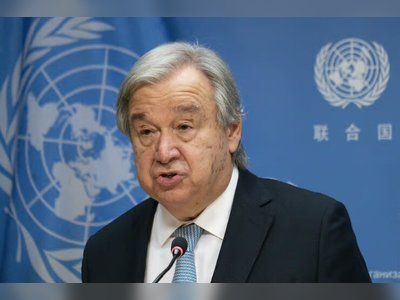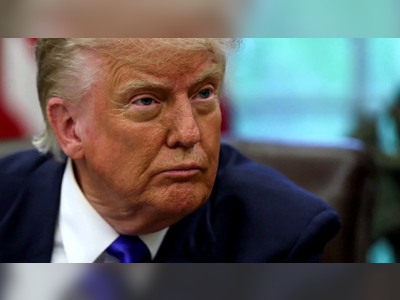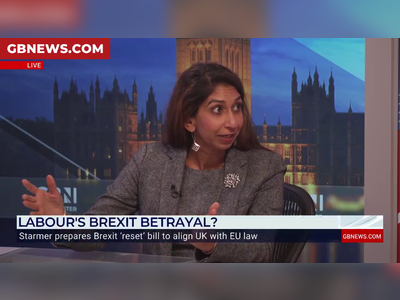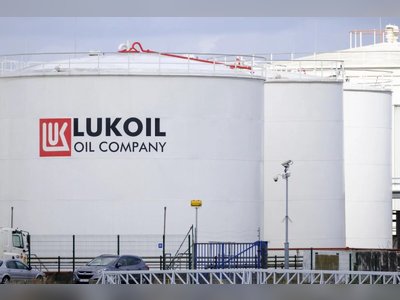
European Competitiveness: The Role of Institutions and Structural Reform Necessities
Exploring Europe's competitiveness challenges amid low productivity growth, the need for institutional reforms, and the integration of green and digital transitions.
COMPETITIVENESS HAS RETURNED TO THE TOP OF THE EUROPEAN AGENDA as policymakers face persistent challenges with low productivity growth, stringent regulations, and demographic issues.
These matters have been compounded by geopolitical tensions, trade fragmentation, and the likelihood of ongoing high energy prices.
Reports by Mario Draghi and Enrico Letta underscore the urgency for Europe to undertake reforms and invest to maintain a competitive stance globally.
The incoming European Commission has emphasized accelerating reforms specifically aimed at innovation, decarbonization, and strategic autonomy.
COMPETITIVENESS, A COMPLEX and multifaceted concept, requires sustainable long-term productivity growth for economic success.
Ensuring a high standard of living for citizens is a core objective linked to maintaining competitiveness.
The current geopolitical landscape necessitates resilience—defined as the capacity to absorb and respond to external shocks.
Striving to lessen foreign dependencies can enhance Europe’s economic security and competitiveness.
THIS ARTICLE EXAMINES the significant role institutions play in elevating productivity through curation of investment, fostering innovation, and facilitating transitions towards greener and digital economies.
The analysis builds upon earlier reports which scrutinized the external aspects impacting European competitiveness, particularly regarding energy shocks.
ACHIEVING SUSTAINABLE GROWTH relies significantly on the framework created by institutions along with high-quality physical infrastructure.
Key factors such as productivity growth, investment, and the adoption of digital technologies heavily influence growth and competitiveness.
The prevailing macroeconomic and geopolitical environment—shaped by demographics and international trade relations—also frames policy priorities.
A COMPREHENSIVE DISCUSSION on the productivity gap between Europe and other leading economies reveals setbacks in firm dynamism, investment, and innovation, this is critical as lower productivity growth poses significant challenges for Europe in maintaining its competitive edge.
While the ICT (Information and Communication Technology) sector shows promise, its contribution has not been as impactful in Europe compared to the United States, indicating a need for enhanced capital investment and productivity strategies.
FIRM DYNAMISM IN EUROPE demonstrates weaknesses compared to the U.S. While both regions have seen declines in new firm creation, the U.S. has retained a greater number of newly established companies.
Research indicates the aging nature of firms indicates decreasing productivity, exacerbated by the lack of competitive pressures from innovative startups.
Enhancing access to financial resources could significantly support young, high-growth firms in Europe, which are crucial for fostering innovation and improving competitiveness.
INCREASED INVESTMENT IN INTANGIBLE ASSETS such as Research and Development (R&D) is essential for improving productivity.
The euro area allocates a smaller percentage of GDP to ICT equipment compared to its U.S. counterpart, contributing to stagnation in groundbreaking innovations and entrenching Europe in a “middle-technology trap.” Enhancing the diffusion of digital technology and the scaling of European firms may stimulate productivity growth.
ALTHOUGH EUROPE LAGS in R&D spending relative to regions like the United States and China, it remains competitive in green innovation activities.
Currently, Europe’s activities in cleantech innovations, measured through international patent applications, are on par with major global players, yet regulatory fragmentation poses barriers to fully leveraging the benefits of the EU Single Market.
INSTITUTIONS, INCLUDING legal and reguatory frameworks, play a fundamental role in shaping business environments, influencing investment decisions, and fostering a culture of innovation.
Research emphasizes the importance of promoting inclusive institutions—those that secure economic opportunities for broad segments of the population.
Systems that support human capital development, specifically education, are integral for enhancing workforce skills, critical for productivity and innovation advancement.
COMPLEX REGULATORY CONDITIONS pose significant obstacles to investment, often disproportionately affecting smaller firms and those transitioning to digital and green business models.
Survey data from the European Investment Bank indicates that firms in Europe identify more substantial long-term barriers to investment than their U.S. counterparts, revealing deficiencies particularly in energy costs, funding access, and infrastructure.
THE REGULATORY ENVIRONMENT IN THE UNITED STATES is often perceived as more conducive to business, primarily due to its streamlined processes aimed at reducing bureaucratic impediments.
Approximately 44% of the costs associated with trade in Europe are attributed directly to its regulatory frameworks, particularly noticeable in the service sector, with some estimates suggesting barriers could equate to an ad valorem tariff of up to 110%.
IN SUMMARY, THE REPORTS BY ENRICO LETTA AND MARIO DRAGHI stress the need for structural reforms to empower European firms, aiming to enhance competitiveness and resilience across markets.
As Europe navigates these challenges, the imperative for cohesive regulatory frameworks and a robust investment ecosystem remains a focal point in regional policy discussions.
These matters have been compounded by geopolitical tensions, trade fragmentation, and the likelihood of ongoing high energy prices.
Reports by Mario Draghi and Enrico Letta underscore the urgency for Europe to undertake reforms and invest to maintain a competitive stance globally.
The incoming European Commission has emphasized accelerating reforms specifically aimed at innovation, decarbonization, and strategic autonomy.
COMPETITIVENESS, A COMPLEX and multifaceted concept, requires sustainable long-term productivity growth for economic success.
Ensuring a high standard of living for citizens is a core objective linked to maintaining competitiveness.
The current geopolitical landscape necessitates resilience—defined as the capacity to absorb and respond to external shocks.
Striving to lessen foreign dependencies can enhance Europe’s economic security and competitiveness.
THIS ARTICLE EXAMINES the significant role institutions play in elevating productivity through curation of investment, fostering innovation, and facilitating transitions towards greener and digital economies.
The analysis builds upon earlier reports which scrutinized the external aspects impacting European competitiveness, particularly regarding energy shocks.
ACHIEVING SUSTAINABLE GROWTH relies significantly on the framework created by institutions along with high-quality physical infrastructure.
Key factors such as productivity growth, investment, and the adoption of digital technologies heavily influence growth and competitiveness.
The prevailing macroeconomic and geopolitical environment—shaped by demographics and international trade relations—also frames policy priorities.
A COMPREHENSIVE DISCUSSION on the productivity gap between Europe and other leading economies reveals setbacks in firm dynamism, investment, and innovation, this is critical as lower productivity growth poses significant challenges for Europe in maintaining its competitive edge.
While the ICT (Information and Communication Technology) sector shows promise, its contribution has not been as impactful in Europe compared to the United States, indicating a need for enhanced capital investment and productivity strategies.
FIRM DYNAMISM IN EUROPE demonstrates weaknesses compared to the U.S. While both regions have seen declines in new firm creation, the U.S. has retained a greater number of newly established companies.
Research indicates the aging nature of firms indicates decreasing productivity, exacerbated by the lack of competitive pressures from innovative startups.
Enhancing access to financial resources could significantly support young, high-growth firms in Europe, which are crucial for fostering innovation and improving competitiveness.
INCREASED INVESTMENT IN INTANGIBLE ASSETS such as Research and Development (R&D) is essential for improving productivity.
The euro area allocates a smaller percentage of GDP to ICT equipment compared to its U.S. counterpart, contributing to stagnation in groundbreaking innovations and entrenching Europe in a “middle-technology trap.” Enhancing the diffusion of digital technology and the scaling of European firms may stimulate productivity growth.
ALTHOUGH EUROPE LAGS in R&D spending relative to regions like the United States and China, it remains competitive in green innovation activities.
Currently, Europe’s activities in cleantech innovations, measured through international patent applications, are on par with major global players, yet regulatory fragmentation poses barriers to fully leveraging the benefits of the EU Single Market.
INSTITUTIONS, INCLUDING legal and reguatory frameworks, play a fundamental role in shaping business environments, influencing investment decisions, and fostering a culture of innovation.
Research emphasizes the importance of promoting inclusive institutions—those that secure economic opportunities for broad segments of the population.
Systems that support human capital development, specifically education, are integral for enhancing workforce skills, critical for productivity and innovation advancement.
COMPLEX REGULATORY CONDITIONS pose significant obstacles to investment, often disproportionately affecting smaller firms and those transitioning to digital and green business models.
Survey data from the European Investment Bank indicates that firms in Europe identify more substantial long-term barriers to investment than their U.S. counterparts, revealing deficiencies particularly in energy costs, funding access, and infrastructure.
THE REGULATORY ENVIRONMENT IN THE UNITED STATES is often perceived as more conducive to business, primarily due to its streamlined processes aimed at reducing bureaucratic impediments.
Approximately 44% of the costs associated with trade in Europe are attributed directly to its regulatory frameworks, particularly noticeable in the service sector, with some estimates suggesting barriers could equate to an ad valorem tariff of up to 110%.
IN SUMMARY, THE REPORTS BY ENRICO LETTA AND MARIO DRAGHI stress the need for structural reforms to empower European firms, aiming to enhance competitiveness and resilience across markets.
As Europe navigates these challenges, the imperative for cohesive regulatory frameworks and a robust investment ecosystem remains a focal point in regional policy discussions.
AI Disclaimer: An advanced artificial intelligence (AI) system generated the content of this page on its own. This innovative technology conducts extensive research from a variety of reliable sources, performs rigorous fact-checking and verification, cleans up and balances biased or manipulated content, and presents a minimal factual summary that is just enough yet essential for you to function as an informed and educated citizen. Please keep in mind, however, that this system is an evolving technology, and as a result, the article may contain accidental inaccuracies or errors. We urge you to help us improve our site by reporting any inaccuracies you find using the "Contact Us" link at the bottom of this page. Your helpful feedback helps us improve our system and deliver more precise content. When you find an article of interest here, please look for the full and extensive coverage of this topic in traditional news sources, as they are written by professional journalists that we try to support, not replace. We appreciate your understanding and assistance.










